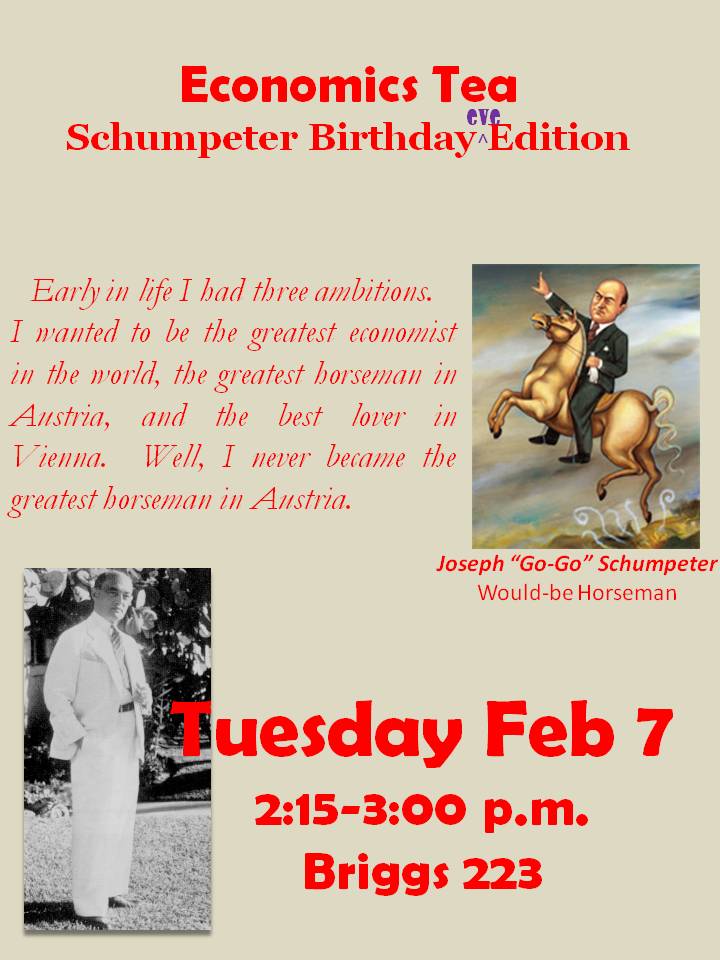Here’s some more advice to potential majors — to all majors, in fact — come to the first Econ Tea of the fall term Wednesday, September 24 at 4:30 p.m. in Briggs 217. We will be welcoming our new faculty members, Hillary Caruthers and Jonathan Lhost.
We will probably have some assortment of refreshments, depending on our department budget and prevailing market prices.



 It’s time to get ready for the penultimate Economics T
It’s time to get ready for the penultimate Economics T
 Our weekly EconT
Our weekly EconT